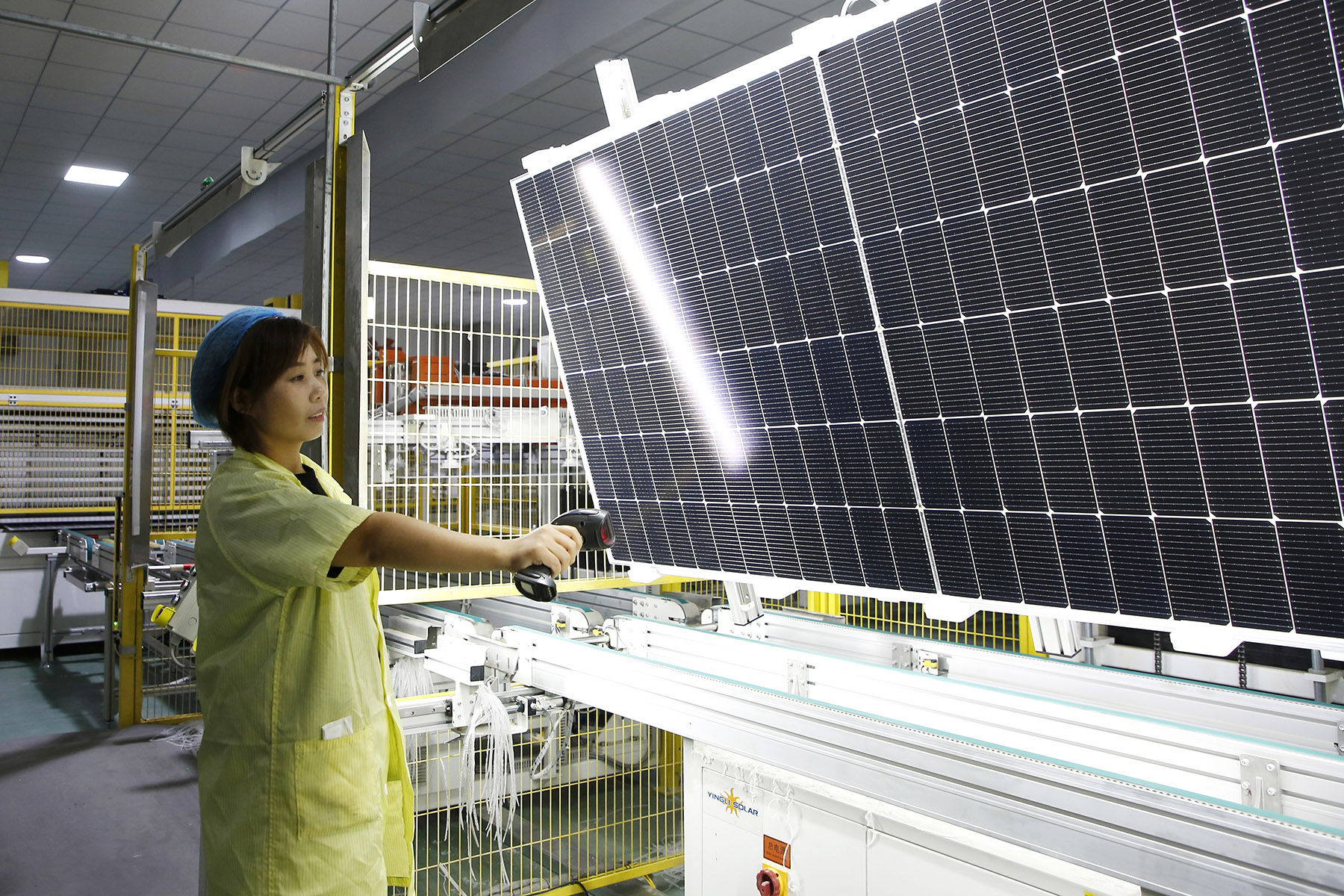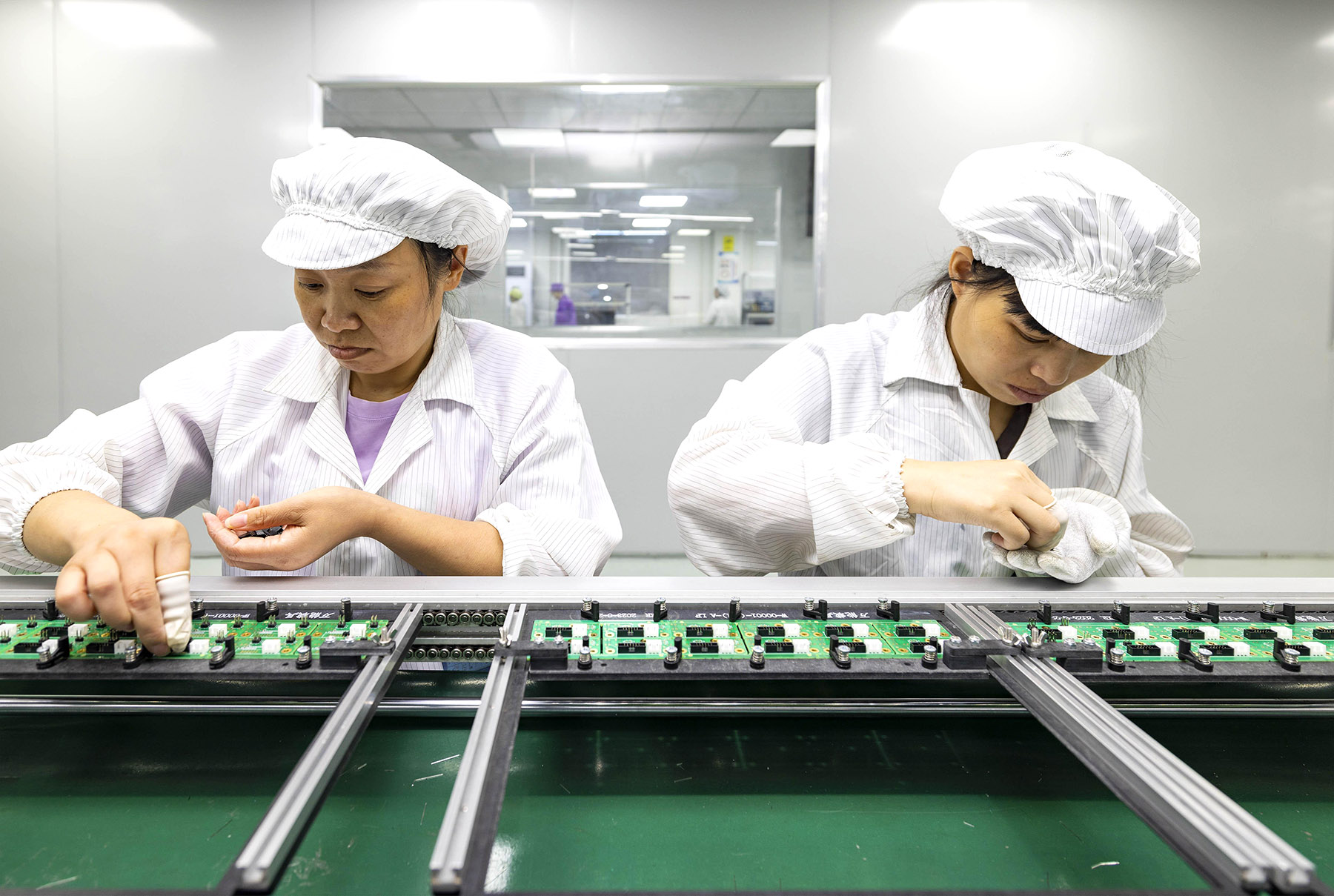Around 5% GDP expansion likely on new quality productive forces, demand recovery

China is on track to reach the 2024 GDP growth target of around 5 percent given the strong policy stimulus, continued recovery trend and gradual recovery in domestic demand, experts and entrepreneurs said.
Despite facing challenges from a sluggish real estate market, still-weak demand and mounting external uncertainties, China still enjoys favorable conditions and capabilities to boost steady growth and tackle structural issues, they said.
READ MORE: IMF raises China's 2024 economic growth forecast to 5%
They expressed optimism about the country's long-term growth, saying technological innovation, notably emerging fields like artificial intelligence and green industries, will serve as a new growth driver, propping up the world's second-largest economy.
Such optimism may grow in coming months on the back of the latest stance adopted by China's top leadership at last week's four-day third plenary session of the 20th Central Committee of the Communist Party of China.
A statement released after the plenum said China will promote high-quality development, build a fairer and more dynamic market environment, improve the existing institutions and mechanisms for fostering new quality productive forces, and further enhance high-standard opening-up.
Svein R. Tyldum, chief executive officer, Marsh McLennan North Asia, a consultancy, said China's economy has made a good start this year with positive factors, laying a foundation for achieving its annual growth target of around 5 percent this year.
"China is a significant source of innovation and talent, and a future competitive global competitor," he said on the sidelines of the 15th Annual Meeting of the New Champions, also known as the Summer Davos Forum, which concluded in late June in Dalian, Liaoning province. "China's pursuit of high-quality drivers of production and its economic development created greater cooperation space for companies around the world to work together in a more harmonious way."
He expressed optimism about China's economic prospects and the company's operations in China this year and beyond, saying China is Marsh McLennan's second-largest operation in Asia. The company is committed to the China market, with more investment plans in the pipeline.
Tyldum noted the broader economy is still facing mounting uncertainties from the external environment and the structural challenges. "The foundation for economic stability and improvement is not yet so solid."

Data from the National Bureau of Statistics showed that China's economy grew by 5 percent year-on-year in the first half of this year, which is consistent with the government's around 5 percent annual growth target set at the beginning of the year. But in the second quarter, China's GDP grew by 4.7 percent year-on-year, cooling from 5.3 percent growth in the first quarter.
China's economy is still facing pressures from lackluster demand, mainly due to a market correction in real estate, still-weak retail spending and the modest growth in infrastructure investment, said Sun Xuegong, director-general of the department of policy study and consultation at the Chinese Academy of Macroeconomic Research, which is part of the National Development and Reform Commission.
China's property investment in the first half fell 10.1 percent year-on-year but was flat relative to the figure for the first five months. Sales area of new properties slumped 19 percent year-on-year in the first half, narrowing from a 20.3 percent decline in the first five months, NBS data showed.
Retail sales, a key measure of consumer spending, grew by 2 percent year-on-year in June, down from the 3.7 percent growth in May.
Against such a backdrop, the policy focus should be placed on boosting domestic demand, spurring consumer sentiment and expanding effective demand, including moves to further stabilize the housing market and strengthen the social security system, Sun said.
More efforts should also be made to stabilize employment, increase personal incomes, further unleash the services consumption potential and increase investment in areas related to the new quality productive forces, green development and people's livelihood, he said.
China has already announced a series of measures to boost demand, including the issuance of 1 trillion yuan ($138 billion) worth of ultra-long-term special treasury bonds this year as well as driving large-scale equipment renewal and trade-in deals for consumer goods.
On the property front, Thursday's plenary session statement vowed to implement well certain measures to resolve real estate risks.
Policymakers have pivoted toward more aggressive rescue measures, including more direct corporate balance sheet support and a step-up in nationwide demand-side easing, to bail out the sector.
Despite facing many headwinds, China still enjoys favorable conditions to foster steady economic growth this year, as the country's domestic demand will likely pick up further in the remainder of the year with a series of supportive policy measures taking effect gradually, Sun said. "China will likely achieve its annual growth target this year."

Looking ahead, Sun said he is optimistic about China's long-term economic outlook, saying there are several positive factors supporting the country's high-quality development.
"China is moving from a middle-income country to a higher-income economy. But we still see a gap between China's per capita income and that of the developed economies," he said. "That means we still have the potential and space to grow further."
Sun said China's economy is still in the stage of transformation of growth drivers toward new quality productive forces.
"Although some of the traditional drivers are indeed weakening, such as the real estate and some traditional manufacturing sectors, we are seeing robust growth and huge potential in emerging fields including renewable energy, new energy, electric vehicles, photovoltaics and artificial intelligence," Sun said. "Those booming sectors are gradually becoming new growth drivers supporting China's long-term growth."
Foreign institutions have recently raised their forecasts for China's economic growth this year amid the country's continued economic recovery trend, strong policy stimulus and resilience in exports.
Joe Ngai, chairman of management consultancy McKinsey China, said he believes China's 2024 growth target is achievable, which will contribute to around one-third of the global economic growth this year.
ALSO READ: Policies set to boost foreign investment
While dismissing some pessimistic views on the Chinese economy propagated by some Western media, he said he "definitely does not think that the Chinese economy has peaked".
Ngai noted China's economy will not repeat Japan's experience three decades back, when it down the path to recession and very low growth, saying China still has huge growth potential in terms of urbanization and more productivity growth.
"I think we're very, very far from a stagnant productivity level. What we are looking at is that the nature of the economy needs to continue to shift," he said.
Ngai highlighted the importance of fostering new quality productive forces, saying innovation and technology will drive future high-quality growth.
"I believe that innovation will remain the biggest growth driver of China's economy. And China can be a global leader in innovation."
Looking ahead, Zhang Xiaoyan, associate dean of Tsinghua University's PBC School of Finance, said technological innovation, notably artificial intelligence and green industries, will serve as a new growth driver, boosting China's growth.


